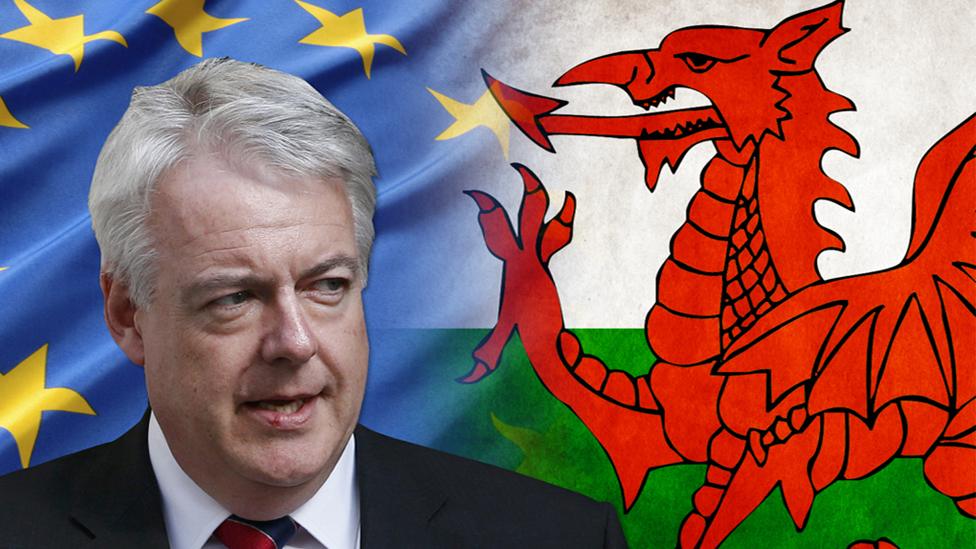Carwyn Jones fights for Welsh ports in Ireland visit
- Published
- comments
Carwyn Jones said Irish firms feared "enormous queues" at Welsh ports after Brexit
Politicians and business leaders in the Irish Republic have "serious concerns" the UK is heading towards a hard Brexit, Wales' first minister has said.
In Dublin for talks, Carwyn Jones said: "Nobody wants it but they have no faith in politicians being able to avoid it."
He said he saw "no examples" of a system free of border checks outside of a customs union.
"It's one thing to aspire to something ... it's another thing for it actually to happen," he said.
Mr Jones warned that a "hard maritime border" between Wales and Ireland would be a "real threat" to both economies.
Wales exported £955m worth of goods to the Irish Republic in the 12 months to June 2017 and Irish businesses support about 11,000 jobs in Wales.
The first minister said ports in Holyhead, Fishguard and Pembroke Dock made a "huge contribution" to the Welsh economy - and he opposed any Brexit deal which would "divert traffic away" from Welsh ports.
"I don't want to see a hard border on the island of Ireland but neither do I want to see customs posts at Welsh ports," he said.
The UK government has said the UK will leave both the European Union's single market and customs union in March 2019.
The customs union reduces administrative and financial trade barriers between its member states, and there is concern leaving it would result in goods being diverted away from sea routes between Wales and Ireland.
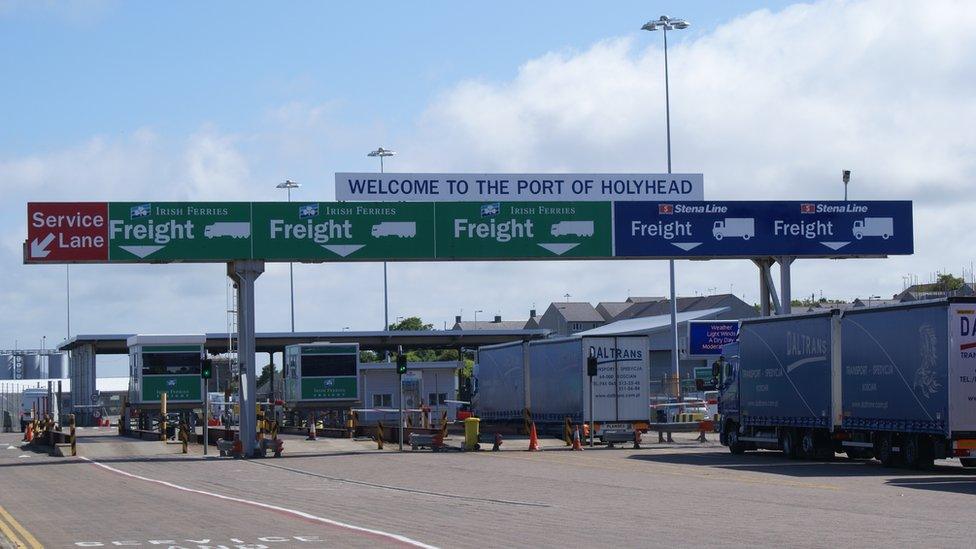
80% of Irish freight trucks that head to Europe pass through Welsh ports
Mr Jones is keen to maintain links with the Republic of Ireland because it is the fourth biggest destination, external in terms of exports.
He said the best option is for the whole UK to have continued participation in the single market and membership of a customs union.
"As we have been clear, leaving the EU must not affect the arrangements for the Common Travel Area [open borders area between the UK, Ireland, the Isle of Man, and the Channel Islands]," Mr Jones said.
"The reality is it is impossible to have a hard border in Ireland as that starts all manner of problems as we know not having a hard border is a critical part of the Good Friday Agreement.
"Nobody is arguing in favour of a hard border but the question is how do you avoid it."
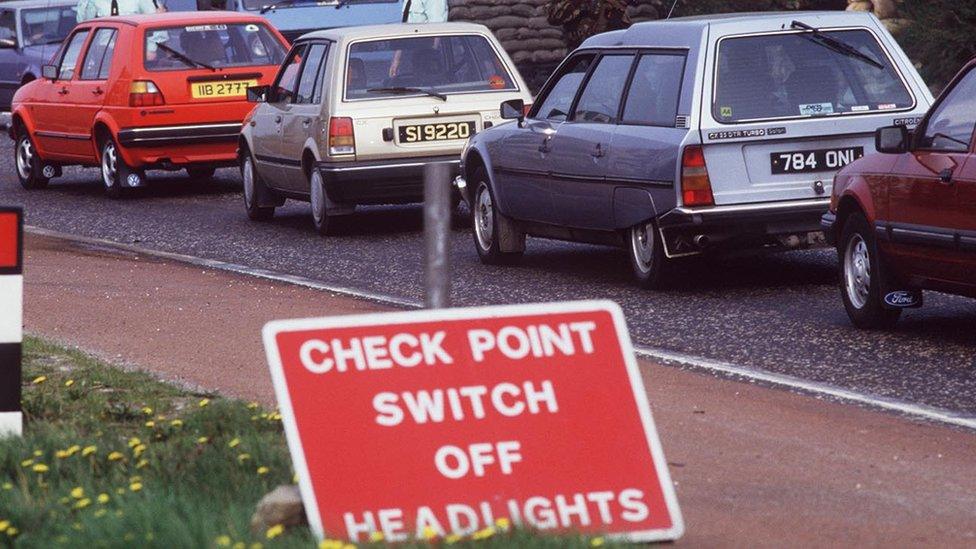
Crossing the Irish border in 1987 - ministers do not want to see checks return after Brexit
He added: "The way to avoid it is the UK remaining in the customs union and many of those problems go away.
"No-one was asked in the referendum should we leave the customs union.
"We should have a sensible Brexit that works for Wales, why would we want to build barriers between ourselves and the rest of the world - and 70% of freight from Ireland to the UK comes through Welsh ports."
In reaching a deal with the EU in December on the first phase of the Brexit negotiations, the UK Government agreed there would not be a "hard border" between the Irish Republic and Northern Ireland.
It also said there will be "no new regulatory barriers" between Northern Ireland and the rest of the UK.
Mr Jones met business leaders in Dublin on Monday but was unable to meet Irish Prime Minister Leo Varadkar as planned.
They spoke by phone instead as Mr Varadkar had gone to Belfast for talks with Prime Minister Theresa May amid hopes that the parties in Northern Ireland were close to an agreement on resuming devolved government.
- Published4 December 2017
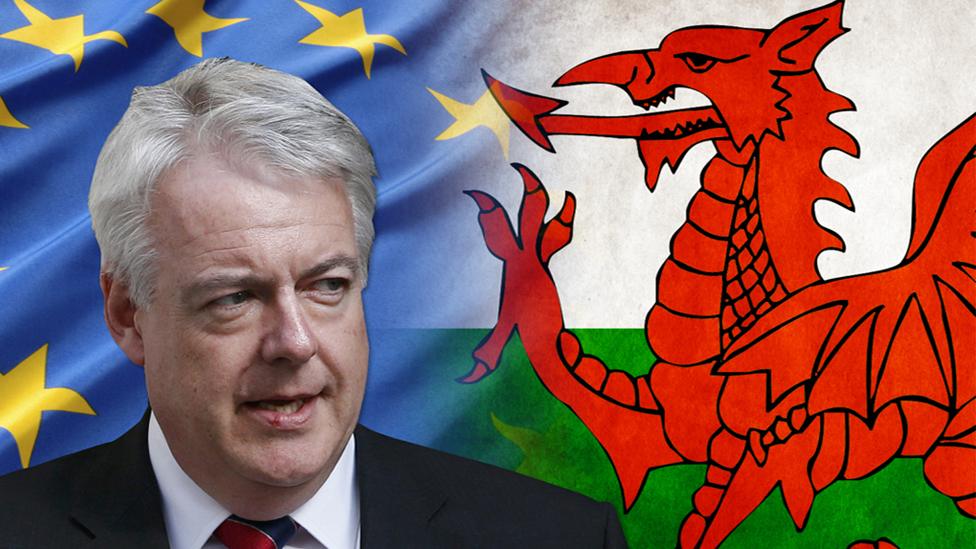
- Published13 January 2018
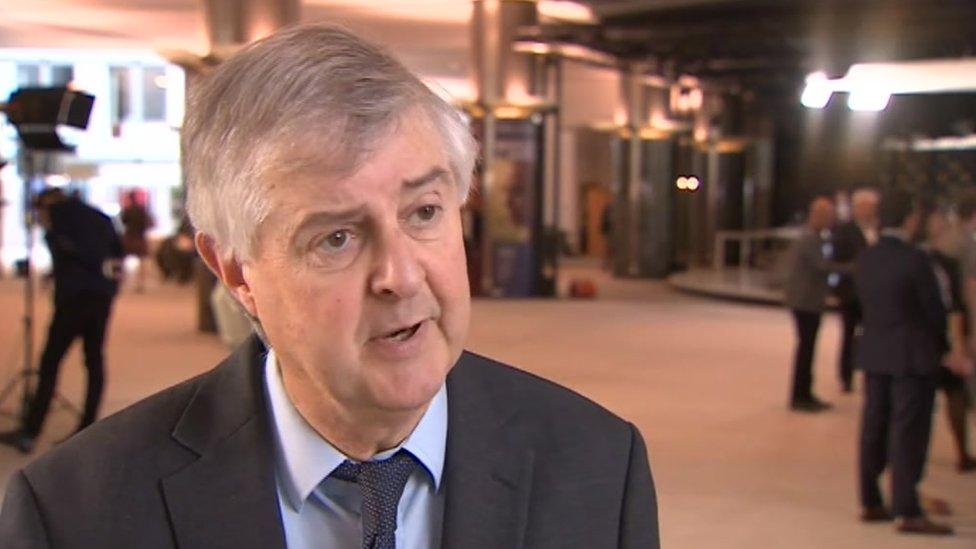
- Published8 December 2017
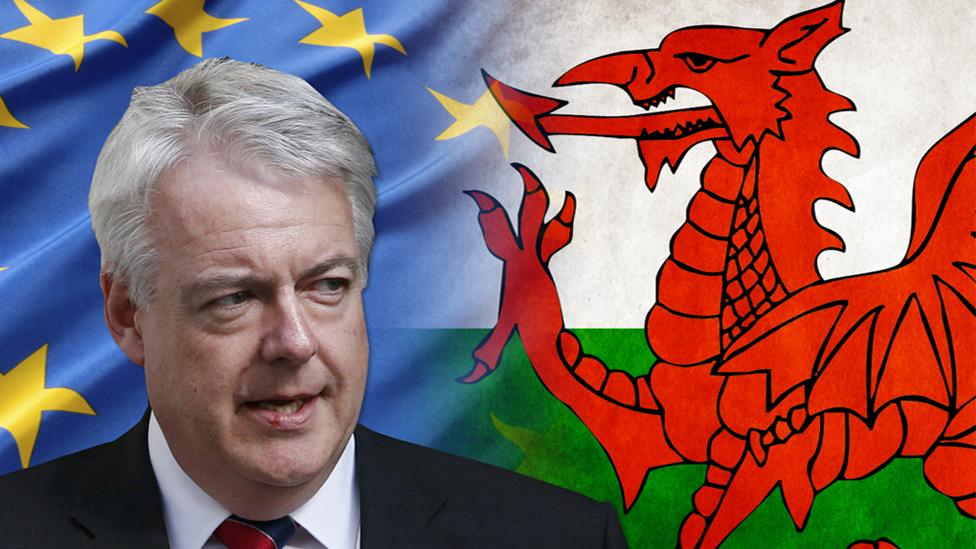
- Published9 October 2017
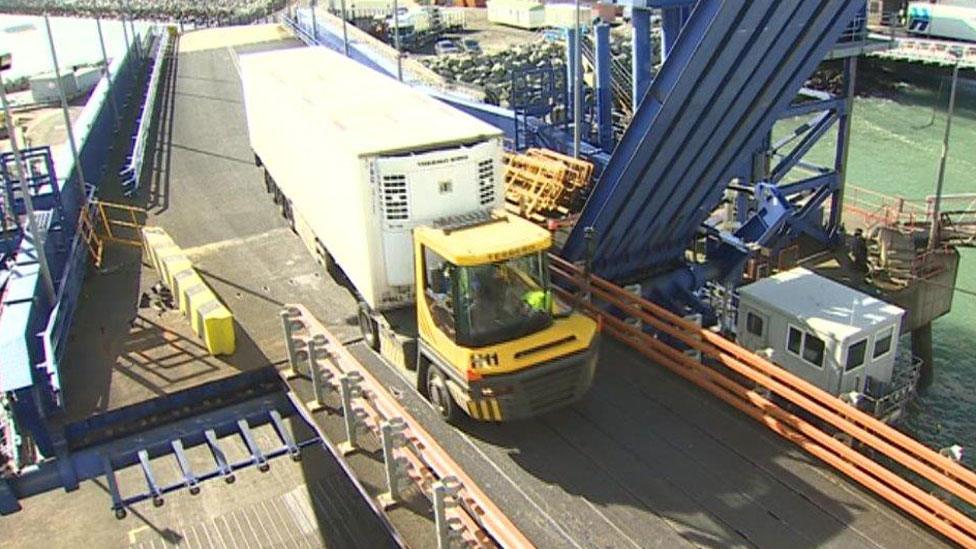
- Published16 August 2017
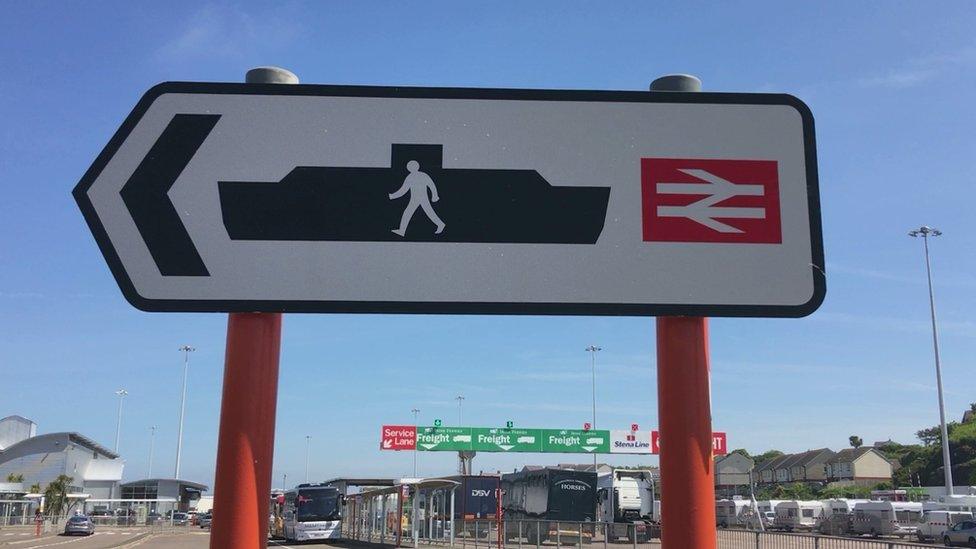
- Published26 February 2017
